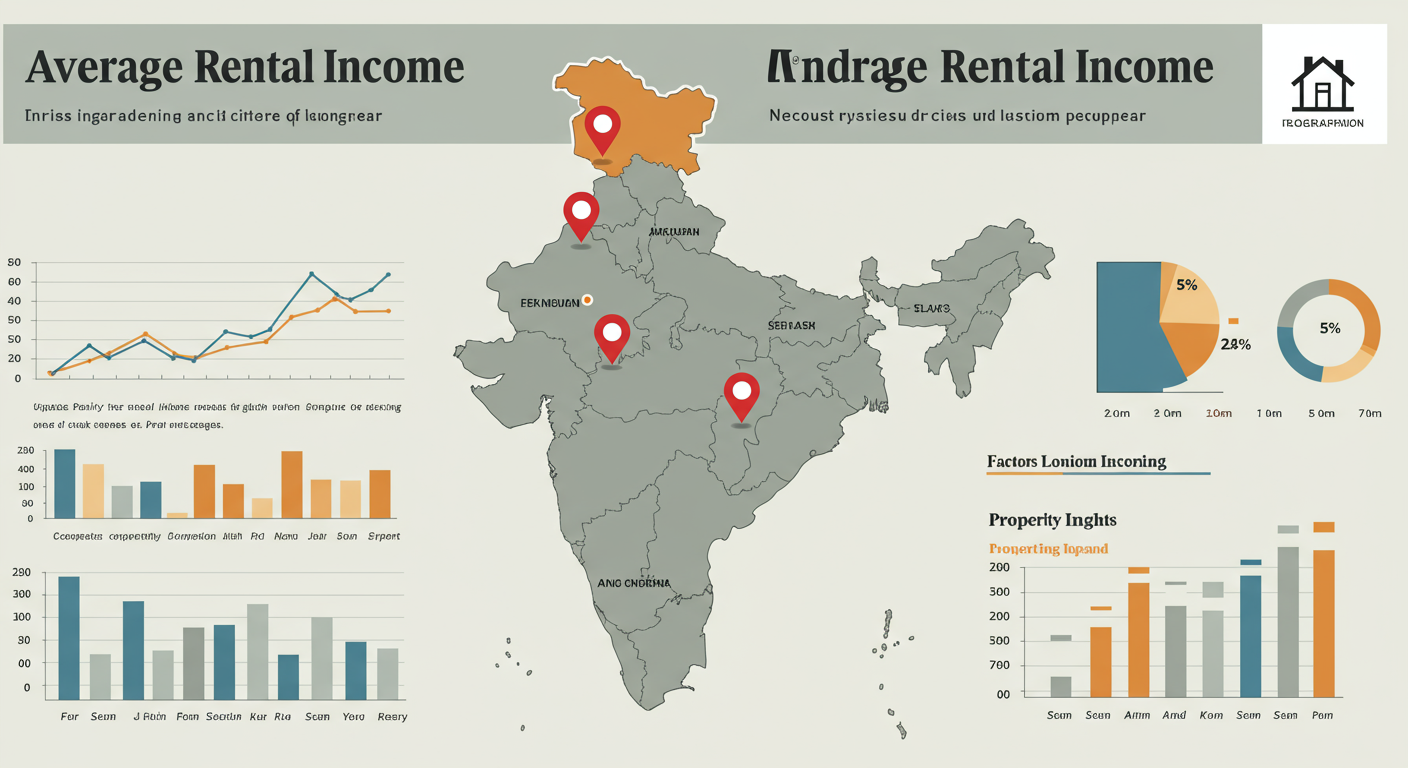Rental income in India is subject to taxation, and understanding the tax implications is essential for landlords and property owners. By familiarizing yourself with the tax rules and implementing strategic tax-saving measures, you can optimize your tax liability and maximize your rental income earnings. Let us delve into the intricacies of tax on rental income and explore ways to minimize your tax burden effectively.

Understanding Rental Income Tax
What is taxable rental income?
Taxable rental income refers to the revenue generated from renting out a property that is subject to income tax laws. It includes the actual rent received by the property owner, irrespective of whether it is received monthly, quarterly, or annually.
How is rental income calculated for tax purposes?
Rental income is calculated based on the annual value of the property, which is determined according to specific guidelines outlined in the Income Tax Act. The computation involves considering municipal valuation, standard deductions, and potential deductions to determine the taxable income.
Are there any deductions available for rental income?
Property owners can benefit from deductions offered under Section 24 of the Income Tax Act, such as the standard deduction of 30% on the annual value of the property. Additionally, interest paid on loans taken for property acquisition, construction, or renovation can be claimed as a deduction.
Income Tax Slabs for Rental Income
What are the tax slabs for rental income in India?
Tax on rental income in India is levied based on the applicable income tax slabs per the property owner’s total taxable income. Different tax slabs have varying rates, and landlords must ascertain the slab they fall under to compute their tax liability accurately.
How does the standard deduction impact tax on rental income?
The standard deduction is crucial in reducing the taxable income from rental property. By availing of the standard deduction of 30%, property owners can lower their tax liability and retain a higher portion of their rental income.
Is there a difference in tax liability based on the property owner’s status?
Yes, the tax liability on rental income can vary based on the property owner’s status, such as being an individual owner or a co-owner. Each owner’s share of rental income is taxable according to their ownership percentage, affecting the overall tax burden.
Tax Saving Strategies for Rental Income
What are the legal ways to reduce your tax liability on rental income?
Property owners can explore various tax-saving strategies, such as investing in specified tax-saving instruments, optimizing deductions, and structuring rental agreements tax-efficiently to minimize their tax outgo.
Can rental agreements impact the tax you pay on rental income?
Rental agreements are critical in determining the tax implications on rental income. The terms and conditions outlined in the contract can affect the taxable income, available deductions, and the property owner’s overall tax liability.
Are there specific deductions under the Income Tax Act for rental property owners?
Yes, rental property owners can claim deductions for expenses related to property maintenance, repairs, and interest on loans. Understanding and leveraging these deductions can significantly reduce the taxable income from rental properties.
Compliance with Income Tax Laws
What are the key requirements for declaring rental income per income tax laws?
Property owners must accurately declare their rental income, expenses, and deductions while filing income tax returns. Complying with income tax laws, maintaining proper documentation, and adhering to deadlines are essential for fulfilling tax obligations.
How should one calculate the property tax on rental income?
Property tax on rental income is calculated based on the annual value of the property, taking into account deductions permissible under the Income Tax Act. Property owners must calculate and pay the applicable property tax to comply with municipal regulations.
Are there any tax implications for renting out a property in India?
Renting out a property in India has tax implications regarding income tax liability, property tax obligations, and compliance with legal regulations. Property owners must stay informed about the tax implications to avoid penalties or legal issues.
Optimizing Tax on Rental Income
How can you ensure you pay the least tax on your rental income?
Property owners can employ effective tax planning strategies to minimise tax on rental income, utilize available deductions, and consider the impact of rent amounts on taxable income. By optimizing tax-saving opportunities, landlords can reduce their overall tax liability.
What is the impact of monthly rent amounts on the taxable income?
The monthly rent received from a property contributes to the owner’s taxable income. Higher rental amounts lead to increased taxable income, impacting the tax liability accordingly. Property owners should assess and plan their tax strategies considering rental income variations.
Are there specific strategies to save tax on rental income of Rs. 10 lakh or more?
Property owners earning rental income of Rs. 10 lakh or more can explore advanced tax-saving strategies, utilize available deductions effectively, and seek professional advice to optimize their tax position and maximize savings on taxable income.
Navigating Taxation on Rental Income
What steps are involved in determining the tax on rental income up to Rs. 7.5 lakh?
Determining tax on rental income up to Rs. 7.5 lakh requires thorough calculations, considering applicable deductions, and reviewing tax slabs. Property owners must follow the prescribed steps to compute their tax liability within this income bracket accurately.
What are the sources of income that need to be considered when calculating tax on rental income?
In addition to rental income, property owners must consider other sources of income, such as capital gains, interest income, and business profits, for comprehensive tax planning. Integrating all income sources ensures accurate tax calculations and compliance with income tax laws.
Is there a way to ensure zero tax on rental income in specific scenarios?
Property owners can potentially achieve a scenario of zero tax on rental income by leveraging deductions, structuring investments strategically, and minimizing taxable income through legal means. Understanding the nuances of tax laws and employing effective tax-saving strategies are crucial in achieving a zero-tax outcome in specific situations.
Q: Is rental income taxable in India?
A: Yes, rental income is considered as income from house property and is taxable in India.
Q: How is rental income calculated for tax purposes?
A: Rental income is calculated as the annual value of a property minus deductions like municipal taxes and a standard deduction of 30%.
Q: What is the income tax on rental income in India?
A: Rental income is taxed at the applicable income tax slab rates according to the income tax laws in India.
Q: Are there ways to save tax on rental income?
A: Yes, you can save tax on rental income by claiming deductions such as a standard deduction of 30% and other relevant expenses.
Q: Can I pay zero tax on rental income?
A: It is possible to pay zero tax on rental income by utilizing deductions and exemptions available under the income tax laws.
Q: Do I need to pay tax on rental income of Rs 7.5 lakh?
A: Any rental income above the exempted limit is taxable, and you need to pay a tax of Rs 7.5 lakh on rental income.
Q: What is the best way to save tax on rental income in India?
A: The best way to save tax on rental income is to ensure proper documentation of expenses and claim all eligible deductions the tax authorities allow.





